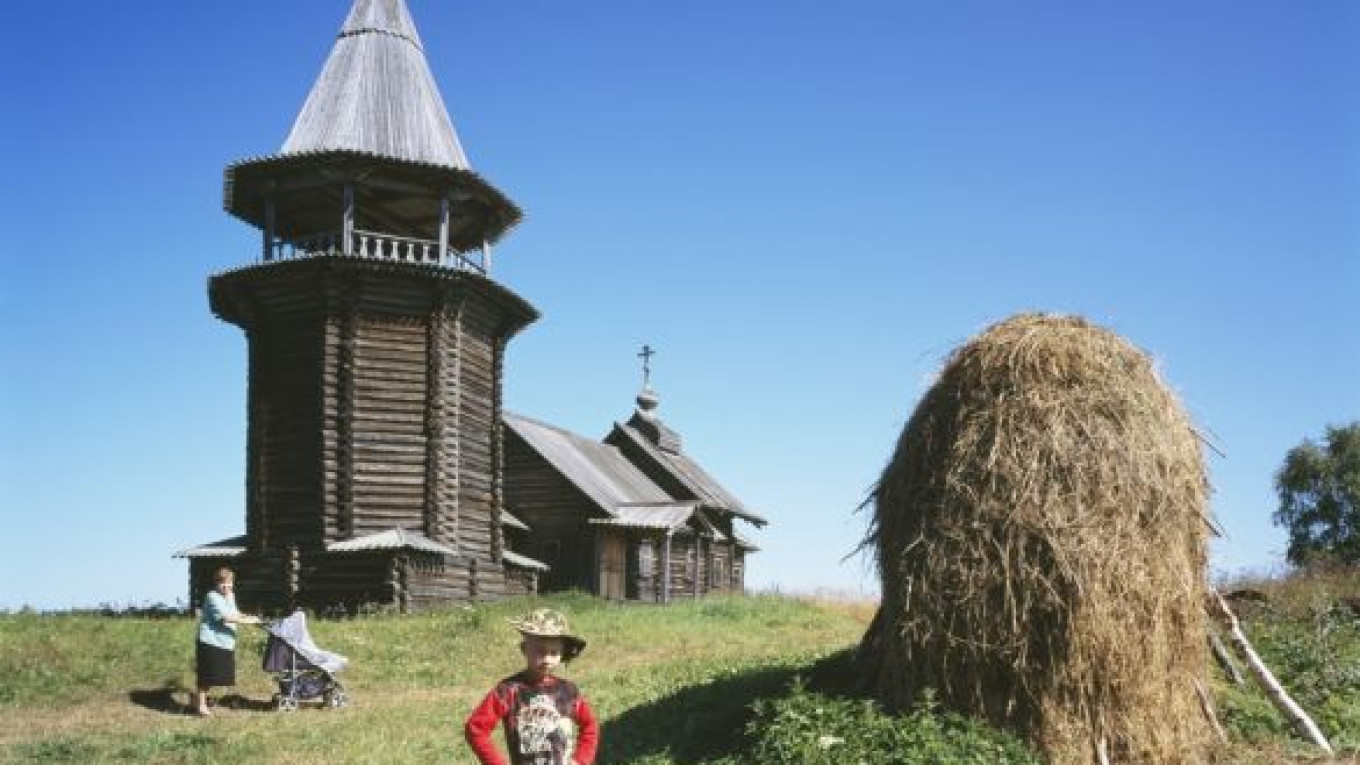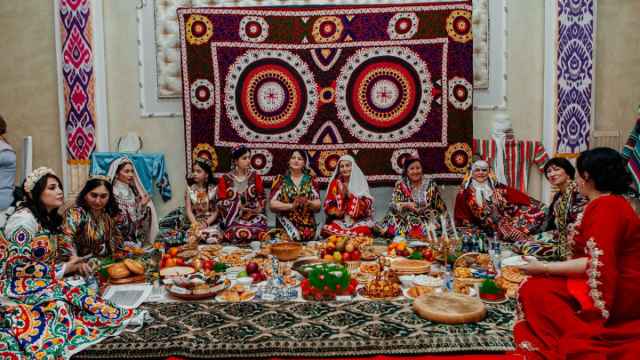"Wooden Churches: Travelling in the Russian North," a new book by photographer Richard Davies and artist and writer Matilda Moreton, is a cause for both joy and sadness.
The book celebrates the simplistic beauty of pre-revolutionary churches hidden away in Russia's northwest but also reflects on the state of disrepair into which many of the buildings have fallen.
Davies and Morton's work "gives the reader a glimpse of a vanishing world," said Mikhail Milchik, an architectural historian from St. Petersburg, at the Moscow launch of the book at the Shchusev Architecture Museum last month.
Nine years in the making, Davies' photographs are the heart of the book, but Moreton's written accounts of the pair's journeys along with the gathered insights of travelers, writers and historians are also essential in bringing the churches to life.
The result is a touching tribute to one of Russia's fading glories and a sensitive portrayal of a sparsely populated corner of the country often overlooked by visitors.
Davies was first drawn to Russia's northwest in 2002, after seeing artist and writer Ivan Bilibin's early 20th-century postcard images of the region's churches. Even in Bilibin's time, many of the churches were under threat — "they [the churches] are being vandalized to the point of destruction or are ruined with 'restoration' to the point of being unrecognizable," he wrote.
One hundred years on, Davies and Moreton revisited the region with fresh eyes but came to the same conclusion, writing in the book's introduction:
"Many churches have been lost: some have been left to rot; some have been destroyed by lightning; countless others by ignorance, spite and neglect. Last year, one church was hit by a reversing tractor — it tumbled like a pack of cards."
In their efforts to detail one of the most original aspects of Russia's architectural heritage, the pair traveled to Karelia and the Leningrad, Vologda, Murmansk and Arkhangelsk regions, often several times a year.
They also read around the subject in depth, collecting tributes to the region and its churches from literary greats such as Leo Tolstoy, Alexander Solzhenitsyn and Vladimir Mayakovsky and travelers' tales to accompany Moreton's firsthand impressions.
"It was a wonderful adventure going through the literature," Davies said at the book launch.
Sometimes Davies stands back, placing the mainly 17th- and 18th-century churches in their community, with locals standing by and stunning nature all around. At other times, he moves in on the often bare interiors, on a simple cross or an ornate painted ceiling.
In one photograph shot in Karelia, a young boy poses by a haystack while his mother waits with a stroller by the church in the distance. In another, in the Arkhangelsk region, a local sits on a sledge facing the camera, with telephone wires crisscrossing between the lens and the 18th-century church in the background.
"You can feel Davies' love for the churches, it flows from the page," said Clementine Cecil, co-founder of the Moscow Architecture Preservation Society, which helped organize the book's presentation in Moscow.
"Wooden Churches: Travelling in the Russian North" can be bought on Amazon's British site , or from the Shchusev Architecture Museum, which is expecting copies to arrive in the coming weeks.
A Message from The Moscow Times:
Dear readers,
We are facing unprecedented challenges. Russia's Prosecutor General's Office has designated The Moscow Times as an "undesirable" organization, criminalizing our work and putting our staff at risk of prosecution. This follows our earlier unjust labeling as a "foreign agent."
These actions are direct attempts to silence independent journalism in Russia. The authorities claim our work "discredits the decisions of the Russian leadership." We see things differently: we strive to provide accurate, unbiased reporting on Russia.
We, the journalists of The Moscow Times, refuse to be silenced. But to continue our work, we need your help.
Your support, no matter how small, makes a world of difference. If you can, please support us monthly starting from just $2. It's quick to set up, and every contribution makes a significant impact.
By supporting The Moscow Times, you're defending open, independent journalism in the face of repression. Thank you for standing with us.
Remind me later.






